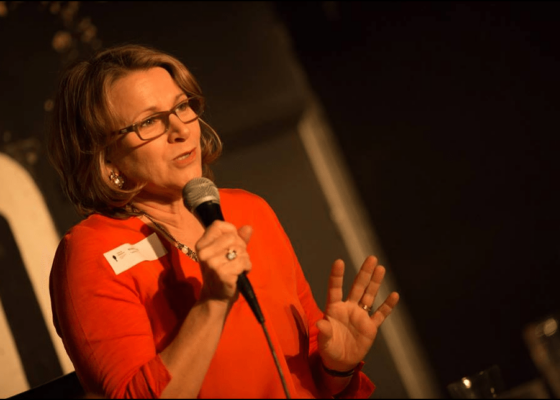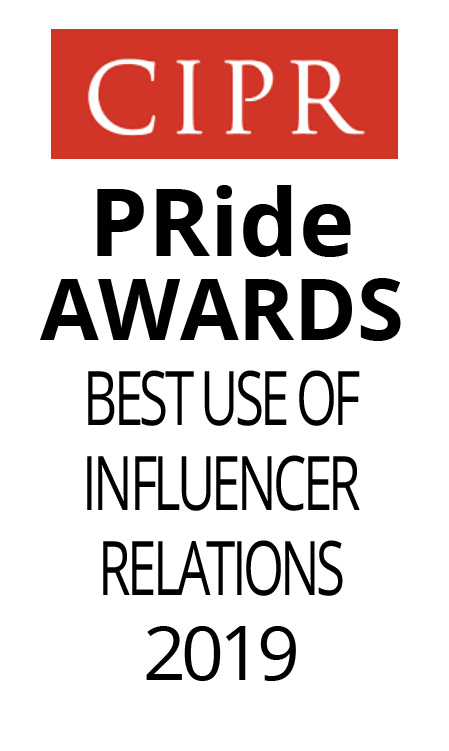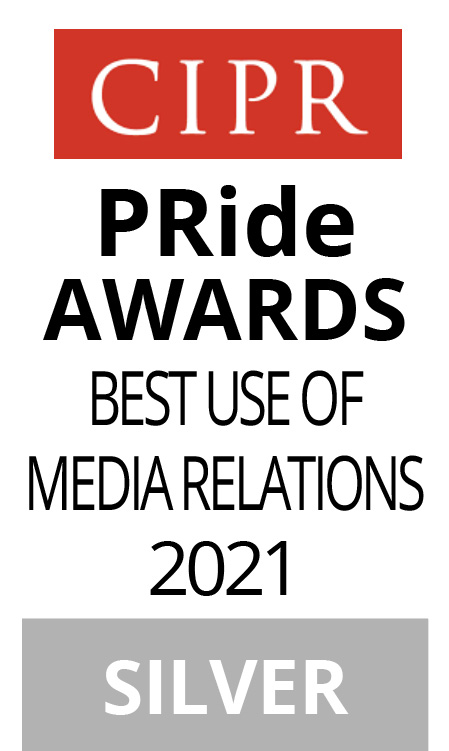This is the script for my part in the debate on the “The role of PR in Fake News” organised by Dan Selinger and the good folk from the OUP for the Oxford PR’s networking group. It was originally published in 2017.
As the subject of fake news doesn’t seem to be going away, I thought it might be an idea to post the script, unedited up here.
I’d like to start by telling you a true story.
A client phoned us up. An article had just been published about him which said his business was targetting young children with advertising, that his company was unethical, that what is happening in schools is a disgrace, and that his company was the unacceptable face of the marketing, and advertising targeting children should be banned .
The client was worried. He said if his clients saw the article, people like Unilever, Nike or the Department of Health, they’d pull their campaigns and it could ruin his business.
Some background on the client. His name is Bob, and he runs a poster company with advertising sites in sixth form areas of secondary schools. They’re not in primary schools.The secondary schools where his company has poster sites get to vet every single advert; only put up the one’s they want, and make a useful amount of money from them.The adverts are usually for things like “do more sport” or ‘get tested for chlamydia”, “wear this deodorant’”or “do an apprenticeship” or “come to our university open day.”
The article made you think that Bob’s company was targeting nursery children with messages like “drink more Sunny D” or “switch to Marlboro Lights.”
So, my question to you is, would you call that article fake news?
Was it truthful? It’s a fine line isn’t it?
And where do you think it was published? It was in The Guardian.
How did this story end? What is the role of the PR in all this?
We secured an apology for Bob, which was published in the print edition and online version of the paper. It was noticed by the BBC, and our client was invited on to Radio Four’s ‘You and Yours’ Programme to talk about responsible advertising to children. We briefed Bob and helped him prepare for the broadcast. There was an interesting and balanced debate on the radio, Bob’s clients stayed and booked more adverts in secondary schools and they all lived happily ever after.
My next (and only other!) story is about a charity we represent, you may have heard of them, the British Beekeepers Association. One Saturday morning, I was just having breakfast, when I checked my phone and noticed that a disgruntled beekeeper had posted on Facebook that the charity was scamming the public out of thousands of pounds of money. He included a lovely sharable picture of a sunrise and a beehive with some hard hitting stats on it.
It wasn’t true, but it was shocking. It had the makings of a perfect Fake News shit storm. I knew from experience exactly how fast a buzz can spread in the bee world.
We once shared a picture from a beekeeper on the BBKA’s Adopt a Beehive facebook page, where the postman had ordered a new beehive online– beehives are quite big remember – and when the postman came to deliver it the beekeeper was out, so the postman left the beehive in its cardboard box on the front doorstep, picked up the doormat, put in on the top of the hive and left a note on the mat saying “delivery under the mat.” It got 1000’s and 1000’s of shares and likes, and ended up published in the Daily Mail, Metro and all over the place. So we’ve seen exactly how fast a buzz can spread in the bee world.
So back to this awful post. It was building shares and comments quickly. What did we do this time?
Within a few hours we’d got a personal, measured but heartfelt statement signed off by the BBKA, and contacted the owner of the feed, to explain the truth of the situation and the implications of the post.
She posted the statement up on her Facebook page, left up all the messages that had already come in, which showed honesty and let people read the trail, but stopped any further comments being posted. The story didn’t spread any further, and we went back to our breakfast, well lunch by then….
Both these stories illustrate the first points I’d like to make about Fake News and the role of PR.
We are the defenders of truth and the most important armoury a client can have in world where their world can be destroyed by fake or even slightly spurious news in just a few moments.
I think there are two very distinct things we are already doing, or could do more of as PR’s.
No 1 We should be more proud of our role in helping the truth to be heard, and making sure that it is truth and not lies that are heard.
We are guardians and communicators who are important cogs in driving the economy and offering balance and choice.
We ensure that messages are heard, and that people, products, brands, services, schools, universities sometimes even whole countries can be discovered and judged fairly. We help them to continue to do business, which we need to keep the wheels going on our society.
We do not peddle fake news, we present positive messages and help ensure conversations are balanced and fair.
If we did not our whole model, our industry would collapse, because only honesty is sustainable in the long term.
Consumers, ordinary people, buy and consume products, and test and judge them every day.
If the product is rubbish they won’t buy it again. If their experience is poor they won’t try it again. The ultimate test of the truth of any product or service is longevity.
If it’s not true to the brand promise or what some might call the “PR puff” it wont last.
PR’s play a vital role in starting conversations about products or companies, getting them heard in a busy, chaotic media world. We represent brands, people, and services which have to be true to themselves to survive. We give them a chance to be heard and to succeed.
So what we can do about Fake News is to use our best skills as PR’s in the way we always have, to get truthful messages out there, start conversations, let everyone get heard and have a chance to thrive.
No 2 I’d like to ask us all to use media information and metrics more intelligently and stop pandering to the world’s most demanding new baby, the internet.
Mark Ritson who writes for Marketing Week is always worth a read – also read of course PR Week and Influence… [Here’s a link to his column – click to it but all means but please come back to this post!]
He and I grew up in the old school world of media research before the internet existed. I have literally spent days and weeks of my life, when I worked for The Guardian, discussing how to ensure we measured newspaper readership fairly and honestly. The research was developed across the media industry, with shared costs to conduct independent research which was – and still is – completely open to public scrutiny.
Mark Ritson consistently challenges digital media metrics.
He quoted the CEO of YouTube CEO Susan Wojcicki who said YouTube was now reaching “more 18 to 49 year-olds during prime time than the top 10 US TV shows combined”.
Think about that figure again. Facebook is reaching “more 18 to 49 year-olds during prime time than the top 10 US TV shows combined”. That’s amazing.
Actually if you look at the time in minutes spent, You Tube would rank 354th in the States for audience share. So it’s not that amazing at all. Yes its influential and as good PRs we’ll be using it as one of our communication channels but its not like, the most powerful media channel in the US.
Similarly, how many of you use twitter? Hands up if you use twitter.
22% of the general public use twitter.
And that’s my final point about Fake News and what we can do about it. It is the mainstream media channels who are amplifying the fake or just plain idiotic news on social media. Most people do not sit on twitter waiting for a post from Donald Trump. They’re not on Instagram all the time waiting to see the next photo of Kim Kardashian’s bum, or constantly on You Tube.
Only us. 98% of people in advertising and marketing are on twitter. And I bet you all know lots of millennials – some of you even are millennials – who are rejecting social media in their droves – it is not as massive as we think. Especially outside London and the south east.
But still The BBC shares tweets and posts with the nation. Literally the News at Ten will show a screen grab of a tweet from Donald Trump.
It’s like BSE all over again! The media has gone crazy, trying to cut costs, eating the cheap stuff which is fake news, and feeding it back to the big old media cows like the BBC and Daily Mail, and then wondering why the world has gone crazy!
So PR’s be proud of our role in defending and presenting the truth. We can and do do good through our work.
We like working with social media as PR’s because it is so deliciously accountable to clients – look at the clicks and likes – “here is the actual number of purchases that came from Facebook!” – but we must also at the same time challenge the metrics.
When we are more confident to challenge the metrics we will be better able to stop the tail wagging the dog – and conduct balanced, integrated PR campaigns that help the truth get heard.
POSSIBLE SOLUTIONS
Apology algorithm
Did you listen to the moral maze on Radio Four talking about Fake News? There were some brilliant phrases in there like “the algorithmic black box of a small number of inscrutable technology companies.”
Or “viewing things through the prism of prior assumptions.” We’ve always done that – the main leader column of every national newspaper is opinion – now we just have way more places to seek out opinions that match our own.
Facebook is testing a Fake News button. The CEO of Buzzfeed is on record as saying his organisation only prints stories they believe to be true.
Lets, as an industry, and on behalf of our clients demand an apology algorithm.
The social media channels know who has been served with what stores in their feeds, they have all the clicks and open metrics. Well why not make sure that same feed is served an apology or correction too? It must be completely possible…
How many lives have been ruined by social media? How many products or brands unfairly dissed? How come a handful of national print media outlets face a Leveson Enquiry and a newspaper Ombudsman and yet there is nothing to challenge a handful of technology companies? Why can’t we legislate for that?
Authenticity and honesty is the only sustainable way for PRs
We must also help genuine voices be heard.
Get content out there from individuals. Here’s an example from our work– there’s a recruitment crisis in HGV drivers. Every HR trying to recruit drivers says “we offer great training, flexible working etc”. How do you help an authentic voice to be heard on this subject?
What we did was create a really short video showing the view from the cab window, showing what a driver sees from their window, with some text describing the great training, how you can meet loads of interesting people and its really flexible around child care – and then you see it’s a woman driving and she’s tiny! And it doesn’t get more authentic than that.
Be authentic and honest with all the people you represent, especially those at the grassroots of any organisations.
We have enough channels now for all shades of opinion and experience to be heard, truthfully – let us as PR’s use them well. It is the only sustainable solution for our industry.
No 3 My third point – yes I have slipped a late extra point in – is that as PR’s we have a duty to support mainstream news organisations like The Guardian, The Times, or even harder to say maybe even the Daily Mail?….
Have you ever seen an apology on Facebook or Buzzfeed? At least we can still do that with our national media channels, demand balance and correction.
I have noticed that very intelligent people also tend to be very polite, and in our shouty new world – our Fake News world – the intelligent point of view gets lost, shouted down. I’m not talking about politics here – and being liberal elite or populist loud – I’m talking about products, brands or organisations.
My point is that the role of PR’s in representing our client or employers point of view or information is more important than ever before, we have to be even more artful to get our messages heard. And we also need to support our traditional media channels more robustly.
Every single one of us in this room should be one of The Guardian’s supporters. You know that annoying sign that comes up – or used to when you copy some content:
“ While more people are reading the Guardian than ever before, far fewer are paying for it. And advertising revenues across the media are falling fast. Become a supporter for £5 a month.”
Yes a whole fiver a month for a free, accountable, democratic press. We should all, as professional PR’s and as individuals at home, pay for newspaper and magazine subscriptions, or we get the media we deserve for being cheap. Good reporting obviously costs money.









